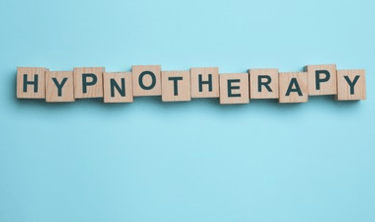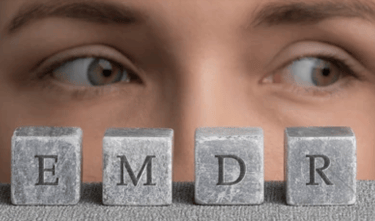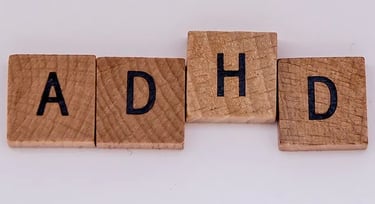




En plus de l’accompagnement thérapeutique, où j’aide les personnes à traverser différentes difficultés telles que l’anxiété, le harcèlement, les problèmes relationnels, les questionnements liés à l’identité LGBTQ+, la neurodivergence ou encore le développement personnel, je propose également des approches spécifiques comme l’hypnose et l’EMDR.
Dans un souci constant de proposer un accompagnement de qualité, je poursuis actuellement une formation complémentaire en thérapie cognitivo-comportementale (TCC).


Hypnose Conversationnelle Stratégique
(PTR – Psychothérapie du Trauma Réassociative)
Formée par l’IMHEB – Gérald Brassine
La thérapie par la parole est souvent très efficace pour traiter les difficultés psychiques. Cependant, elle peut parfois montrer ses limites chez les personnes ayant vécu un traumatisme ou un stress intense. C’est là que l’hypnose peut devenir un outil particulièrement puissant.
Le mot hypnose peut sembler intimidant au premier abord. Mais rassurez-vous : il ne s’agit pas ici d’un spectacle à la "Mesmer", comme on peut le voir dans les films ou sur scène. L’hypnose utilisée en thérapie est un état naturel et profondément ressourçant, que nous expérimentons tous régulièrement sans même en avoir conscience.
Qu’est-ce que l’hypnose ?
L’hypnose est simplement un état de concentration intense et d’absorption, comparable à des moments du quotidien que vous avez sûrement déjà vécus. Vous est-il déjà arrivé de conduire quelque part et de ne pas vraiment vous souvenir du trajet ? Ou de ressentir une montée d’excitation en pensant à des vacances à venir ? Ces moments sont des exemples courants d’un état hypnotique naturel.
Notre cerveau réagit à l’imaginaire comme s’il s’agissait de la réalité. Par exemple, quand nous imaginons un scénario catastrophe, notre corps libère des hormones de stress comme si nous vivions vraiment cette situation. De la même manière, un traumatisme ne se résume pas à ce qui s’est passé, mais à la manière dont notre cerveau a enregistré l’événement.
Grâce à l’hypnose, nous avons la possibilité de "réécrire" cet enregistrement, et d’opérer des changements profonds et durables.
Nous reprenons le contrôle, au lieu de rester enfermés dans des réactions automatiques liées au passé. Cette transformation nous permet de passer de la survie à la pleine vitalité. L’hypnose nous aide à libérer les anciens récits intérieurs qui ne nous servent plus, à sortir des schémas de peur, de douleur ou de blocage. En réimaginant nos expériences internes, nous retrouvons notre capacité à répondre à la vie avec clarté, confiance et calme — une base solide pour une véritable guérison.
Qu’est-ce que la PTR ?
La PTR (Psychothérapie du Trauma Réassociative) utilise l’hypnose conversationnelle stratégique pour vous aider à accéder aux racines de votre souffrance et à les transformer — sans avoir à revivre l’intensité émotionnelle du traumatisme.
C’est une approche à la fois collaborative et profondément respectueuse :
Stratégique : Nous travaillons en temps réel avec vos ressentis, émotions et images mentales.
Conversationnelle : L’état hypnotique s’installe naturellement à travers l’échange, sans induction spectaculaire ni perte de contrôle.
Émancipatrice : Vous gardez toujours le contrôle du processus. Je suis là pour vous accompagner, pas pour diriger.
Ensemble, nous créerons les conditions propices aux changements que vous souhaitez voir émerger dans votre vie. Cette méthode est naturelle, sécurisante et adaptée à votre rythme. Nous travaillons avec votre esprit, votre corps, et vos ressources internes.
Que peut traiter la PTR ?
La PTR peut être particulièrement bénéfique pour :
Les traumatismes et le stress post-traumatique (TSPT)
L’anxiété
Le deuil
Les traumatismes liés à des abus, accidents ou interventions médicales
L’estime de soi et les croyances limitantes
Les blocages émotionnels
Les douleurs chroniques d’origine psychosomatique
Et bien d’autres difficultés…
Formée par l’AHTMA – Patrick Lecomte
Qu’est-ce que la thérapie EMDR ?
La désensibilisation et le retraitement par les mouvements oculaires (EMDR) est une approche thérapeutique puissante et reconnue scientifiquement. Elle permet de traiter les souffrances émotionnelles liées à des expériences traumatiques ou à des croyances négatives profondément ancrées.
Contrairement à la thérapie par la parole classique, l’EMDR se concentre sur le traitement des souvenirs non résolus et des émotions, sensations et pensées qui y sont associées, pour vous aider à avancer avec plus de clarté, de légèreté et de sérénité.
Comment fonctionne l’EMDR ?
Lorsqu’on vit un traumatisme, le cerveau peut parfois ne pas réussir à traiter complètement l’événement. Celui-ci reste alors "bloqué" dans le système nerveux. Ces souvenirs non digérés peuvent se manifester sous forme de flashbacks, d’anxiété, ou encore d’une image négative de soi.
La thérapie EMDR aide à retraiter ces souvenirs en stimulant les mécanismes naturels de guérison du cerveau.
Pendant les séances, une stimulation bilatérale est utilisée — par exemple des mouvements oculaires guidés, des tapotements alternés, ou des sons — tout en évoquant le souvenir difficile.
Ce processus permet de désensibiliser la charge émotionnelle liée au souvenir et de reprogrammer la manière dont le cerveau y réagit, pour que l’événement puisse enfin être intégré de manière plus apaisée et adaptée.
Pour quels troubles l’EMDR est-elle efficace ?
L’EMDR a été largement étudiée et est reconnue comme une méthode efficace pour accompagner notamment :
Le trouble de stress post-traumatique (TSPT)
L’anxiété et les crises de panique
Le deuil et les pertes affectives
Les problèmes d’estime de soi
Les croyances négatives sur soi-même
Les traumatismes liés à des agressions, accidents ou événements médicaux
… et bien d’autres difficultés liées à des vécus douloureux
Accompagnement Thérapeutique pour le TDAH
La thérapie est adaptée à vos objectifs personnels, en vous offrant un soutien dans des domaines tels que l’estime de soi, la compréhension des émotions, la concentration et l’organisation. Pour les personnes avec un TDAH, elle constitue un espace collaboratif pour explorer les défis spécifiques liés à la régulation émotionnelle et à la gestion du quotidien, tout en développant des stratégies concrètes et personnalisées pour mieux vivre avec le trouble.
Psychoéducation
"Qu’est-ce qui ne va pas chez moi ? Pourquoi je suis comme ça ?"
Il n’y a rien qui ne va chez vous. Comprendre le TDAH est la première étape pour mieux le gérer.
La psychoéducation consiste à apprendre comment le TDAH influence le fonctionnement du cerveau, le comportement et les émotions. Elle permet de mieux comprendre son propre fonctionnement et de diminuer les sentiments de honte, de dévalorisation ou de frustration.
Stratégies Personnalisées
Ensemble, nous mettrons en place des outils concrets pour améliorer l’organisation, la gestion du temps et la prise de décisions. Ces stratégies peuvent inclure :
La mise en place de routines structurées
Le découpage des tâches en étapes simples et réalisables
L’utilisation de renforcements positifs et de récompenses pour encourager certains comportements
L’apprentissage de techniques de pleine conscience pour renforcer la concentration et gérer l’impulsivité
Des outils de régulation émotionnelle pour comprendre, apaiser et mieux gérer les émotions fortes, réduire les débordements et favoriser la résilience
Coaching des Fonctions Exécutives
Les fonctions exécutives (planification, hiérarchisation, auto-régulation…) peuvent représenter un défi pour les personnes avec un TDAH. Le coaching permet de développer des compétences clés à travers des outils concrets, tels que :
Identifier son propre rythme de productivité et s’y adapter
Repérer les difficultés spécifiques (par exemple : respecter des délais, gérer les distractions)
Développer ensemble des solutions pratiques, réalistes et durables
Hypnose et TDAH
Pour les personnes chez qui le TDAH a laissé des traces de découragement ou de honte, l’hypnose peut être un outil puissant. En induisant un état de relaxation concentrée, elle permet de renforcer la clarté mentale, de restaurer la confiance en soi, et de travailler sur les blocages internes en profondeur.
Soutien aux Parents et aux Familles
Dans le cas des enfants ou adolescents avec un TDAH, le travail thérapeutique comprend souvent un accompagnement parental. Les séances permettent d’améliorer la communication, de poser des limites claires et bienveillantes, et de créer à la maison un environnement structurant et soutenant, propice à l’épanouissement.
Services thérapeutiques
